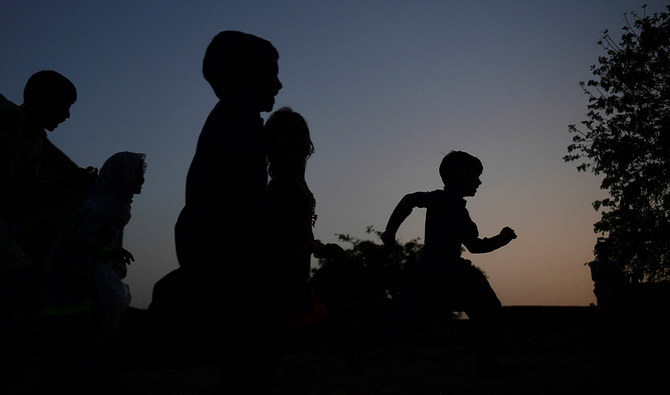ISLAMABAD: A Pakistani aid group dedicated to child protection said Friday its data shows assaults and sexual abuse of children have surged by nearly a third in the country last year.
The organization’s director said she fears an increase in “dark web” gangs trading in child pornography and buying and selling children are to blame for the increase, along with lockdowns imposed during the coronavirus pandemic.
The Sahil organization said the number of cases increased 30% in 2021, compared to the year before. The group has been tracking child sexual abuse and working on child protection programs for more than 25 years.
In its annual report entitled “Cruel Numbers,” the group says there were 3,852 cases of child sexual abuse in 2021 in Pakistan, including child marriages — or over 10 assaults per day.
Sahil records cases reported daily in more than 80 national and regional publications across Pakistan. Roughly 80% of those cases result in charges, the report said, noting that the vast majority of abuse cases rarely get reported.
According to the data, 54% of the victims were girls and 46% were boys. The sexual abuse of boys mostly took place between the ages of 6 and 16, girls were abused at an even younger age.
Munizae Bano, the organization's executive director, expressed surprise at the dramatic surge and while she blamed pandemic lockdowns for some of the increase in child abuse, she said criminal activity perpetrated by gangs trading in children is on the rise.
“Absolutely, it is more is active here,” she told The Associated Press, speaking over the phone from Islamabad, the Pakistani capital.
During pandemic measures such as lockdowns and school closures, child abuse rose in many places, in part because with children being out of school, there was less supervision, increasing their vulnerability.
The majority of those committing the assaults were family acquaintances or otherwise known to the children, the report said.
“Acquaintances are still the most involved in child sexual abuse, as well as service providers, family members, strangers, and women abettors," it noted.
















